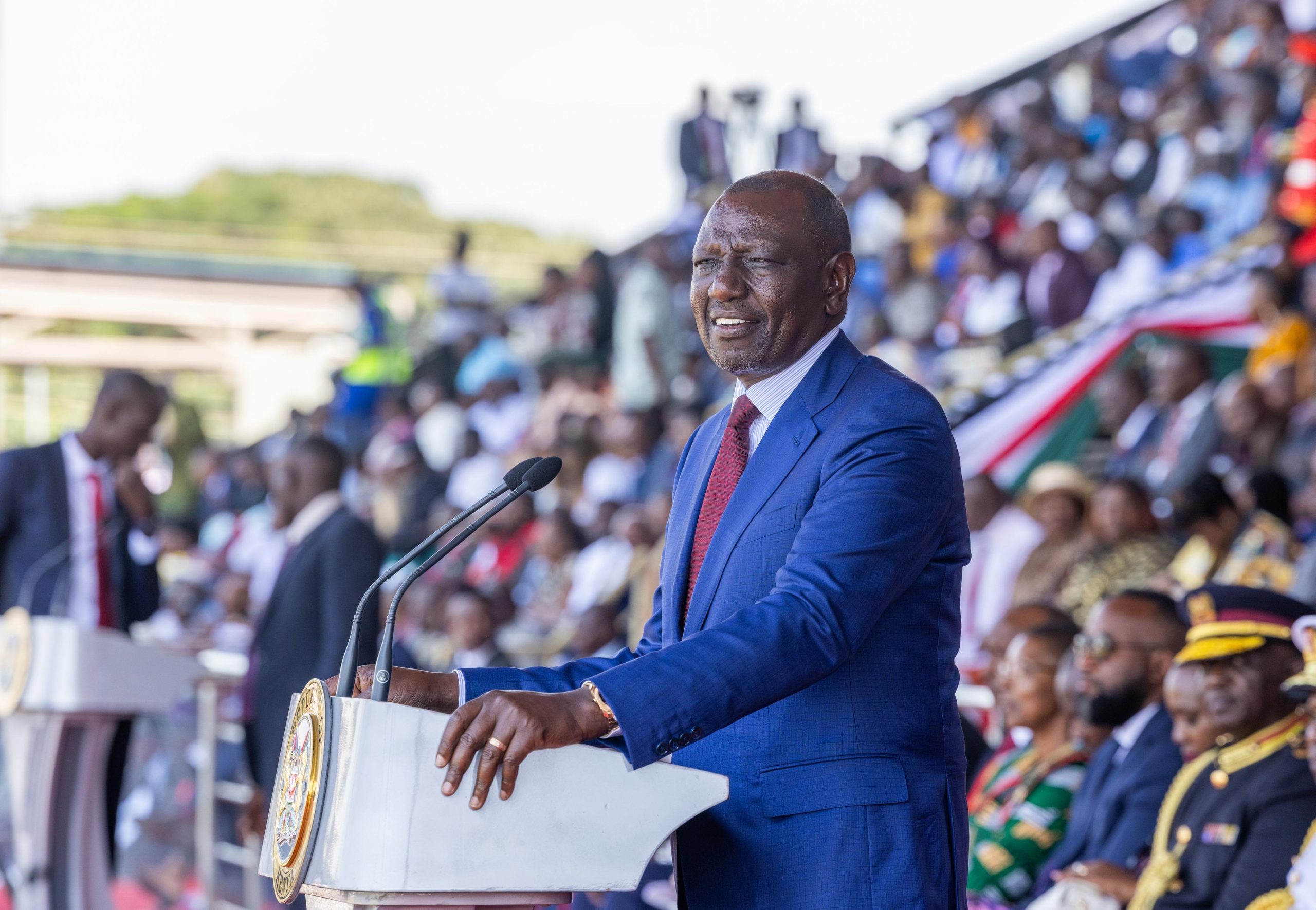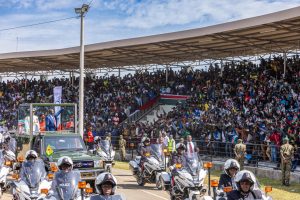News
Reprieve for Kenyans as Ruto Announces Lipa SHA Pole Pole Payment Plan

President introduces flexible payment system for health insurance targeting informal sector workers
President William Ruto has thrown a lifeline to millions of Kenyans in the informal sector by unveiling a flexible payment plan that will allow them to pay their Social Health Authority (SHA) contributions in affordable installments.
Speaking during the 62nd Madaraka Day celebrations in Homa Bay County on Sunday, President Ruto announced the “Lipa SHA Pole Pole” initiative, designed to address the persistent challenge of irregular premium payments that has plagued Kenya’s health insurance scheme.
“To address persistent challenges such as irregular premium payments, especially among the informal sector, the government of Kenya is introducing an inclusive payment solution known as lipa SHA pole pole,” the President declared to thousands of attendees.
The new payment system represents a significant departure from the traditional annual lump-sum payments that have proven burdensome for many Kenyans, particularly those in the informal economy who constitute the majority of the country’s workforce.
Under the new arrangement, Kenyans will have the flexibility to remit their annual SHA contributions through manageable installments – whether monthly, weekly, or even daily – based on their financial capabilities and income patterns.
“This initiative will enable Kenyans to remit their annual SHA contributions through flexible, manageable installments, whether monthly, weekly, or even daily, based on their financial abilities,” President Ruto explained.
The system has been designed with simplicity in mind. Citizens can access the service by dialing *147# and following the prompts to register and begin their contributions immediately.
The implementation of “Lipa SHA Pole Pole” has been made possible through a comprehensive partnership involving multiple government ministries and private sector players. The collaboration includes the Ministry of Health, the Ministry of Cooperatives and MSMEs, mobile network operators, financial institutions, and the Hustler Fund.
This multi-stakeholder approach is expected to ensure the system’s accessibility across different platforms and payment channels, making it easier for informal workers to maintain their health coverage.
President Ruto emphasized the broader goal of ensuring that no Kenyan should have to sacrifice their dignity or assets to access medical treatment. The initiative aims to eliminate the heartbreaking scenarios where families are forced to sell their livestock, land, or other possessions to afford healthcare.
“I urge every Kenyan to take charge of their health by enrolling with the Social Health Authority (SHA), so that together we can end the heartbreaking cycle where families are forced to auction their livestock, sell their land, or part with their life’s possessions just to afford medical care,” the President stated.
“No Kenyan should have to choose between life-saving treatment and their dignity. Let us unite to build a healthcare system rooted in dignity, equality, and compassion; a system where access to care is a right, not a privilege for a few.”
The announcement comes at a critical time for Kenya’s health insurance sector. Just days before the Madaraka Day celebrations, the World Bank had raised concerns about the government’s approach to Universal Health Coverage, particularly the rollout and funding model of the Social Health Insurance Fund (SHIF).
In its Public Finance Review report released on May 27, the World Bank warned that implementing SHIF in an economy dominated by informal employment would face serious funding challenges. The bank estimated that the scheme would raise only Sh67 billion annually against a target of Sh157 billion.
The World Bank had also advised the government to exempt low-wage earners in the formal sector from contributing to SHIF, highlighting the financial pressures facing ordinary Kenyans.
The “Lipa SHA Pole Pole” initiative is expected to significantly improve enrollment and retention rates in the national health scheme, particularly among informal sector workers who have historically struggled with the annual payment requirements.
By allowing contributions to be spread across smaller, more manageable amounts, the system is designed to ensure continuous health coverage for families without imposing financial strain, while also promoting the sustainability of the health insurance fund.
The flexible payment structure acknowledges the irregular income patterns common in the informal sector, where workers such as small traders, artisans, and casual laborers often receive daily or weekly payments rather than monthly salaries.
As Kenya continues its journey toward achieving Universal Health Coverage, the “Lipa SHA Pole Pole” initiative represents a pragmatic approach to addressing the unique challenges faced by informal sector workers.
The success of this flexible payment system could serve as a model for other social protection programs, demonstrating how innovative financing mechanisms can help bridge the gap between policy objectives and practical implementation.
With the system now operational through the *147# platform, the focus shifts to ensuring widespread awareness and adoption among the target population, particularly in rural and urban informal settlements where the need for accessible healthcare financing is most acute.
Kenya Insights allows guest blogging, if you want to be published on Kenya’s most authoritative and accurate blog, have an expose, news TIPS, story angles, human interest stories, drop us an email on [email protected] or via Telegram
-

 Grapevine6 days ago
Grapevine6 days agoAlleged Male Lover Claims His Life Is in Danger, Leaks Screenshots and Private Videos Linking SportPesa CEO Ronald Karauri
-

 Lifestyle1 week ago
Lifestyle1 week agoThe General’s Fall: From Barracks To Bankruptcy As Illness Ravages Karangi’s Memory And Empire
-

 Grapevine2 days ago
Grapevine2 days agoRussian Man’s Secret Sex Recordings Ignite Fury as Questions Mount Over Consent and Easy Pick-Ups in Nairobi
-

 Investigations2 weeks ago
Investigations2 weeks agoEpstein Files: Sultan bin Sulayem Bragged on His Closeness to President Uhuru Then His Firm DP World Controversially Won Port Construction in Kenya, Tanzania
-

 News2 weeks ago
News2 weeks agoAUDIT EXPOSES INEQUALITY IN STAREHE SCHOOLS: PARENTS BLED DRY AS FEES HIT Sh300,000 AGAINST Sh67,244 CAP
-

 Business2 weeks ago
Business2 weeks agoKRA Can Now Tax Unexplained Bank Deposits
-

 Investigations1 week ago
Investigations1 week agoEpstein’s Girlfriend Ghislaine Maxwell Frequently Visited Kenya As Files Reveal Local Secret Links With The Underage Sex Trafficking Ring
-

 News1 week ago
News1 week agoState Agency Exposes Five Top Names Linked To Poor Building Approvals In Nairobi, Recommends Dismissal After City Hall Probe

















